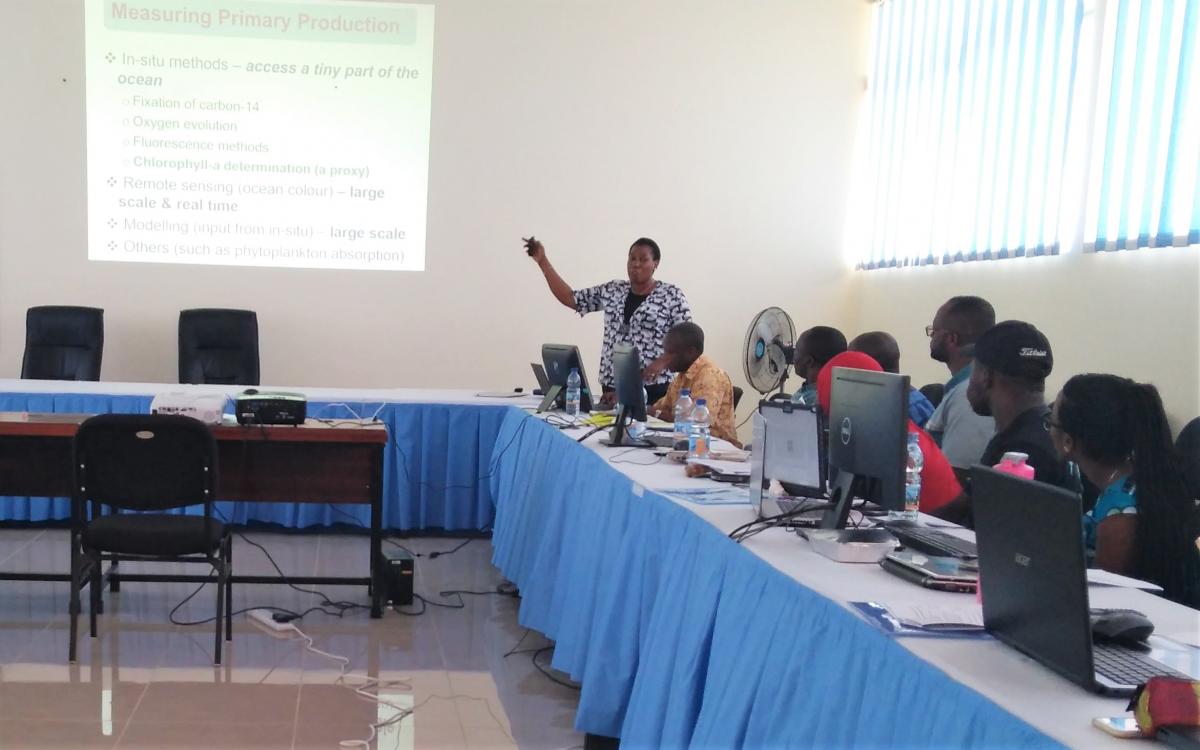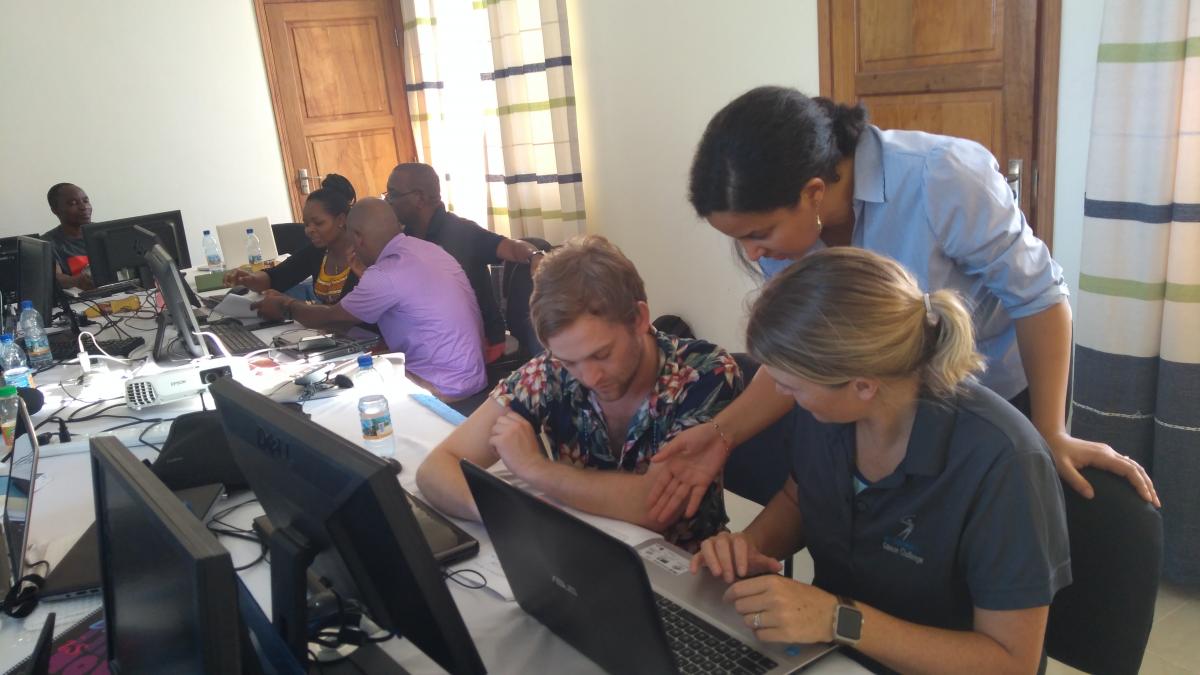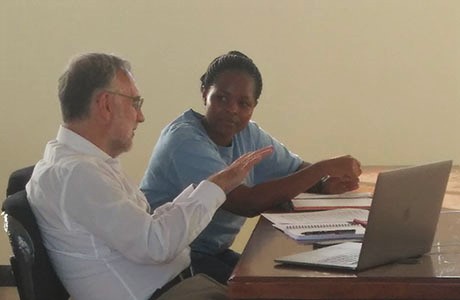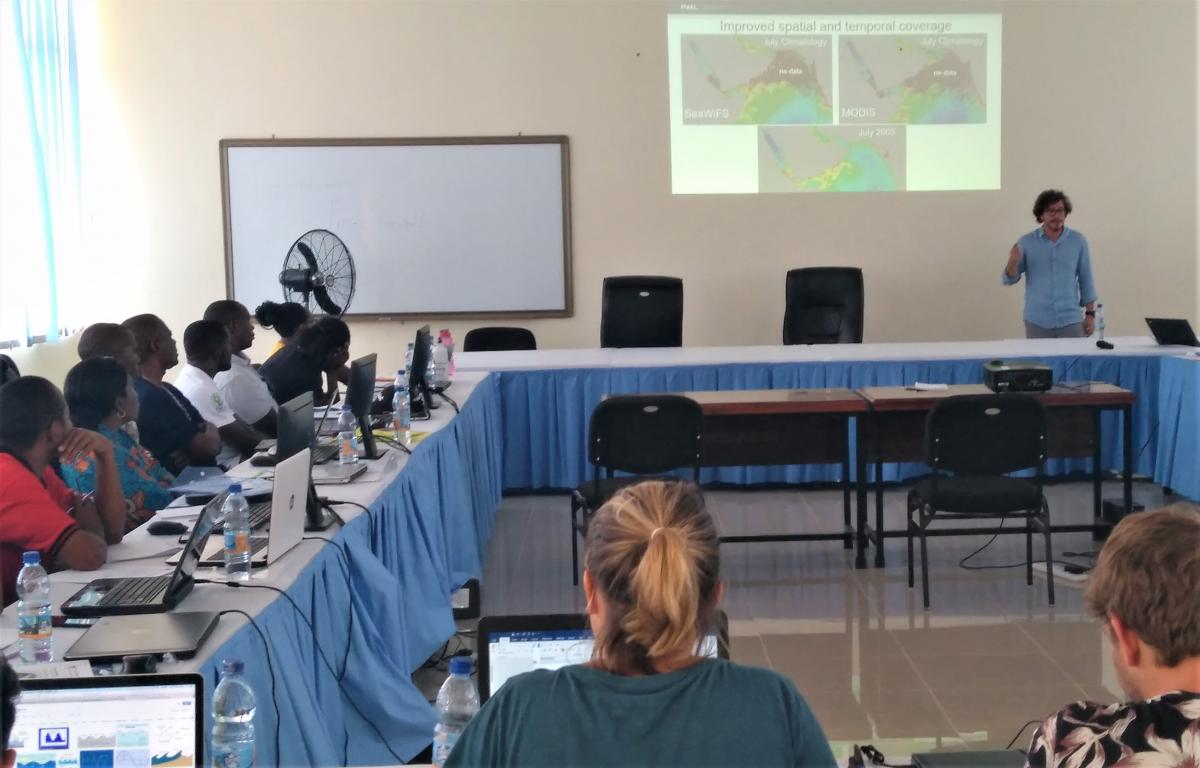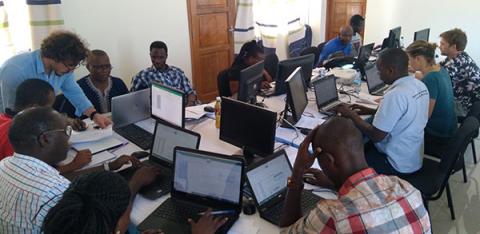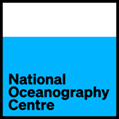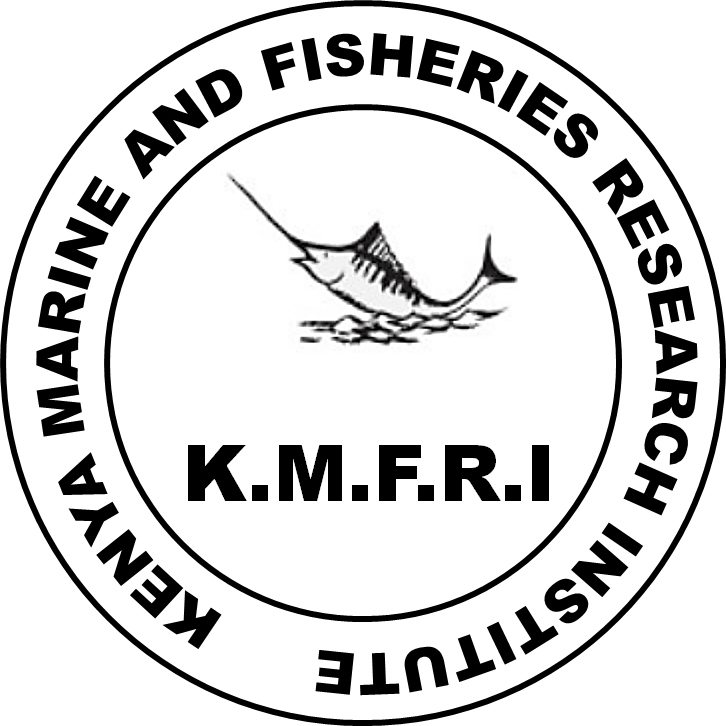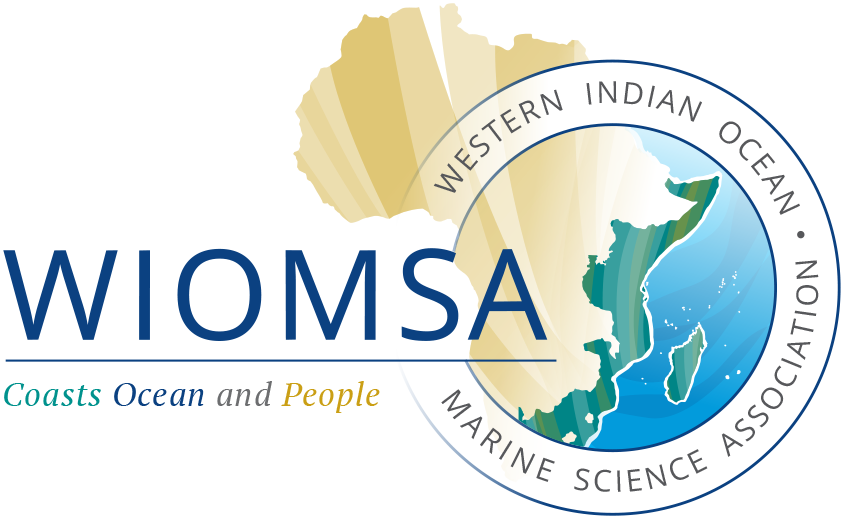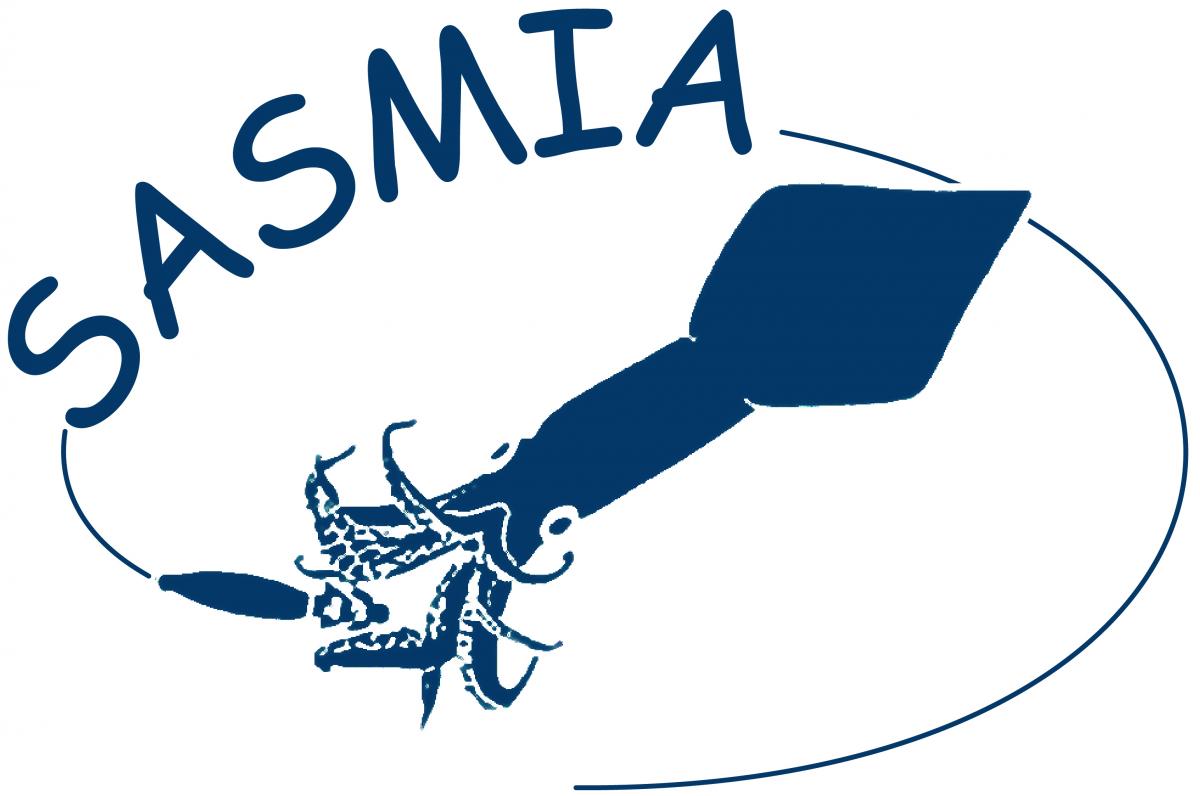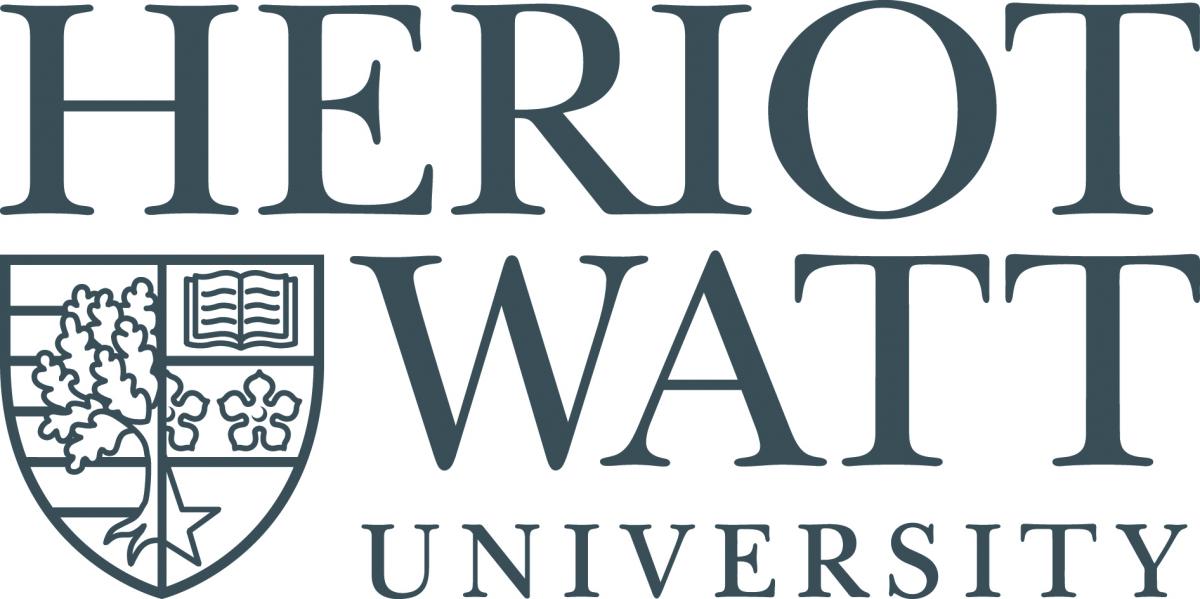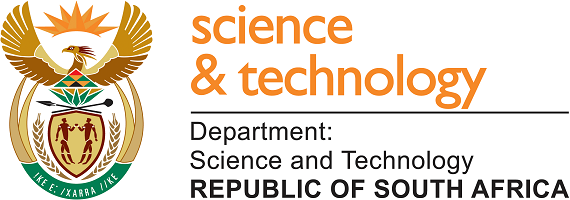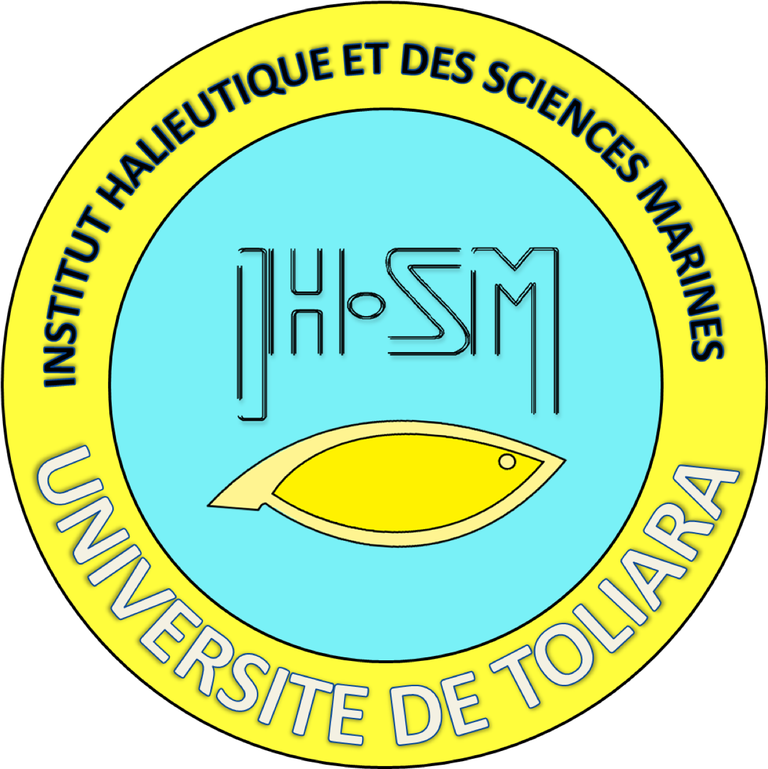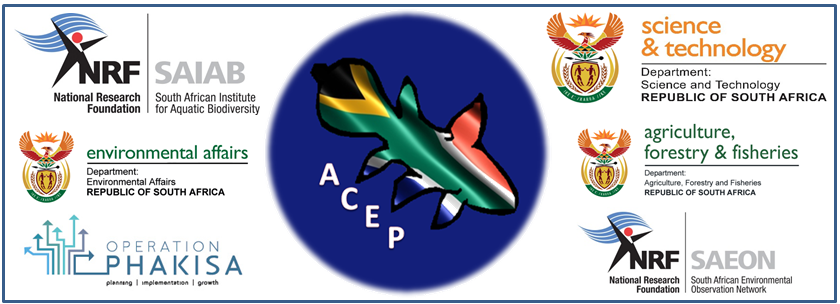Knowledge Management and Sharing; The art of creating value from intangible assets.
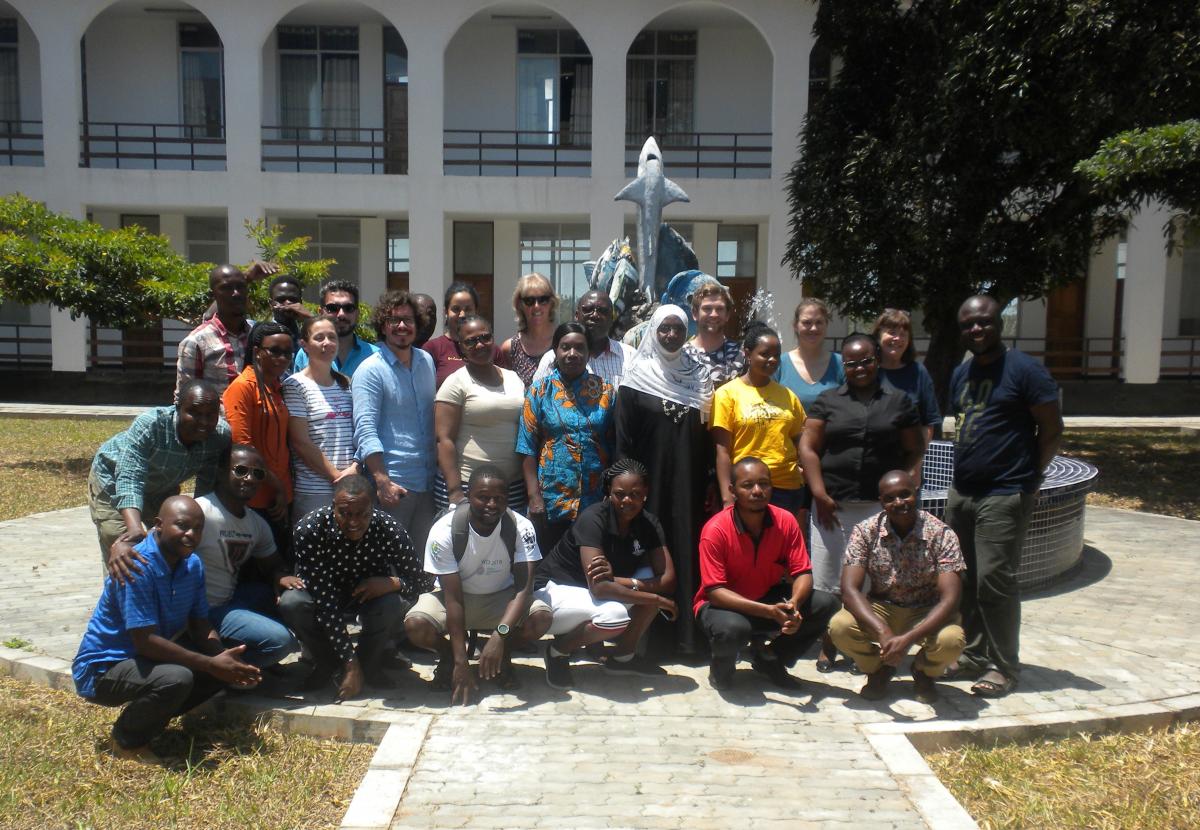
International participants of the SOLSTICE GIS & Remote Training Workshop in the courtyard of IMS's Buyu Campus in Zanzibar, September 2018
With content contributions from James Mbugua (CORDIO) & Val Byfield (NOC)
“In today's environment, hoarding knowledge ultimately erodes your power. If you know something very important, the way to get power is by actually sharing it.” Joseph Badaracco
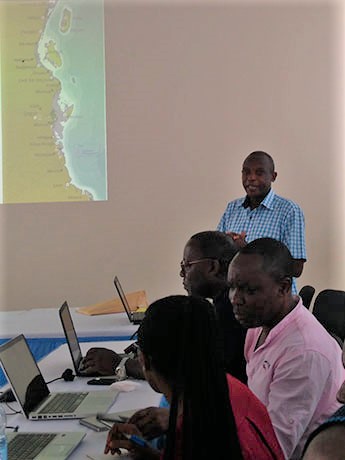
Systemic knowledge management is a crucial tool and asset for creating value and securing the sustainability of a project's impact beyond its lifetime. The benefits of knowledge management are enormous, however, it's only through deliberate application of such processes that these magnificent opportunities can be discovered.
The SOLSTICE-WIO project identified the importance of knowledge management and entrenched a capacity development component in the project objectives. This component aims at promoting research skills by conducting both hands-on training, as well as developing Massive Online Online Course (MOOC) content for internet-based learning.
As, so, in September 2018, SOLSTICE organised a two-week training workshop on Geographic Information System (GIS) and Remote Sensing (RS) held at the Institute of Marine Science's Buyu Campus in Zanzibar. The course attracted a total of 31 participants from five WIO countries, Kenya, Tanzania, South Africa, Comoros and Madagascar. CORDIO East Africa, through their GIS Expert James Mbugua, contributed actively int he course by preparing relevant course content and material. Experts from SOLSTICE partnership, CORDIO-EA, IMS and NOC delivered GIS and RS lectures and in-situ training. Consolidated outputs from this training will go a long way in ensuring project sustainability in the WIO region by providing the necessary future momentum, synergy and efficiency.
It was a perfect opportunity for establishing useful career contacts and networks that will go a long way in stimulating innovation and cultural changes in the management of natural resources.
